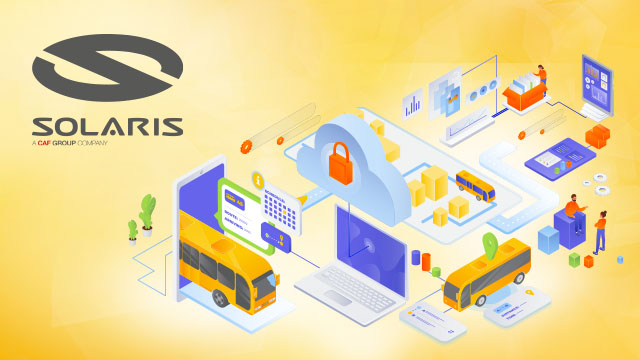Compliance in AWS - how to comply with RODO, NIS2, HIPAA, PCI DSS and other regulations?

In the age of digitalization and globalisation, organizations around the world are increasingly turning to cloud solutions to optimize their operations, improve scalability and reduce costs. However, along with the benefits come challenges, especially in terms of meeting regulatory requirements for data protection, information security, and user privacy. Compliance, or regulatory compliance, is one of the key aspects of cloud infrastructure management. Amazon Web Services (AWS) offers advanced tools and services that can help you comply with regulations such as RODO (GDPR), NIS2, HIPAA, PCI DSS, and others.
The purpose of this article is to explain how AWS supports organizations in achieving compliance and what steps you need to take to ensure full compliance with AWS. You will learn what regulations are relevant to businesses, what tools AWS offers, and what practices are worth implementing to effectively protect data and meet regulatory requirements.
Why is compliance in AWS important?
Compliance is more than a legal requirement - it is also a matter of trust for customers and business partners. Violations of regulations such as RODO or PCI DSS can lead to hefty fines, reputational damage, and loss of user trust. Companies using AWS need to be aware that the responsibility for compliance is shared between the cloud provider (AWS) and the end user, according to a shared responsibility model.
This model assumes that AWS is responsible for the security of the cloud infrastructure, including the data centers, networks, hardware, and software it operates. The customer, on the other hand, is responsible for the security of its applications, the configuration of its services, and the protection of the data it stores and processes in the cloud. Therefore, understanding this division of responsibilities is key to effective compliance management.
RODO (GDPR) in AWS - How to comply?
RODO, or the General Data Protection Regulation, applies to all organizations that process personal data of EU citizens. This regulation imposes several requirements, such as protecting data from unauthorized access, data portability, and reporting security breaches within a certain timeframe.
How does AWS support RODO?
AWS allows the selection of the region in which data will be stored, allowing companies to comply with data localization requirements. For example, organizations can store data in the AWS Frankfurt or AWS Warsaw region to ensure that data remains within the EU. In addition, AWS offers advanced encryption mechanisms through AWS Key Management Service (KMS), allowing companies to have full control over encryption keys.
AWS Artifact, a tool available in the AWS ecosystem, provides documentation on RODO compliance that can be used during audits. Also worth mentioning are the Data Processing Agreements (DPAs) that AWS provides to its customers to ensure regulatory compliance.
NIS2 - Network and Information Security Directive
The NIS2 Directive targets critical sectors such as energy, healthcare, and transport, and aims to increase resilience against cyber threats. Companies required to comply with NIS2 must implement advanced data protection mechanisms, ensure business continuity, and report on security incidents.
How does AWS support NIS2?
AWS offers a number of tools to help meet the requirements of this directive. Tools such as AWS Shield and AWS WAF (Web Application Firewall) protect applications from DDoS attacks and other threats. AWS CloudTrail enables monitoring and logging of cloud activity, which is key to identifying and analyzing potential incidents.
With Amazon GuardDuty, organizations can detect anomalies in network traffic and respond quickly to potential threats. AWS Backup, on the other hand, facilitates data backup, which is important to ensure business continuity in the event of an incident.
HIPAA and healthcare data protection
HIPAA (Health Insurance Portability and Accountability Act) applies to organizations that process medical data in the US. AWS offers HIPAA-compliant services such as Amazon S3, Amazon RDS, and AWS Lambda.
Companies using AWS can sign a Business Associate Agreement (BAA), an agreement that formalizes commitments to protect medical data. AWS also allows medical data to be encrypted both at rest and during transmission, a basic HIPAA requirement.
PCI DSS and payment card data
The PCI DSS standard applies to companies that process payment card data. AWS has PCI DSS certification for many of its services, such as Amazon RDS and AWS Lambda. Key features that help with PCI DSS compliance include data encryption, key management, and access control.
AWS also offers tools to monitor compliance, such as AWS Security Hub, which automatically identifies non-compliance with regulations and suggests corrective actions.
How do you ensure compliance in AWS?
Ensuring regulatory compliance in AWS requires both using the right tools and implementing best practices. Here are the key steps to take:
- Analyse regulatory requirements - Analyse the regulations that apply to your business and identify areas of concern.
- Selecting the right AWS services - Ensure you are using services certified for compliance with the regulations in question.
- Access management - Configure access policies according to the principle of least privilege.
- Compliance monitoring - Use tools such as AWS Config or AWS Audit Manager, to monitor compliance status on an ongoing basis.
- Team training - Ensure all staff understand regulatory requirements and can use AWS tools effectively.
Summary
Compliance in AWS is not only a requirement, but also an opportunity to increase security and trust among customers. Amazon Web Services offers a range of tools and services that can facilitate compliance with regulations such as RODO, NIS2, HIPAA and PCI DSS. However, the key is to understand your responsibilities under a shared responsibility model and to consistently implement cloud governance best practices.
If your organisation needs compliance support on AWS, get in touch with the experts who can help you optimise your processes and secure your data in line with current regulations.



